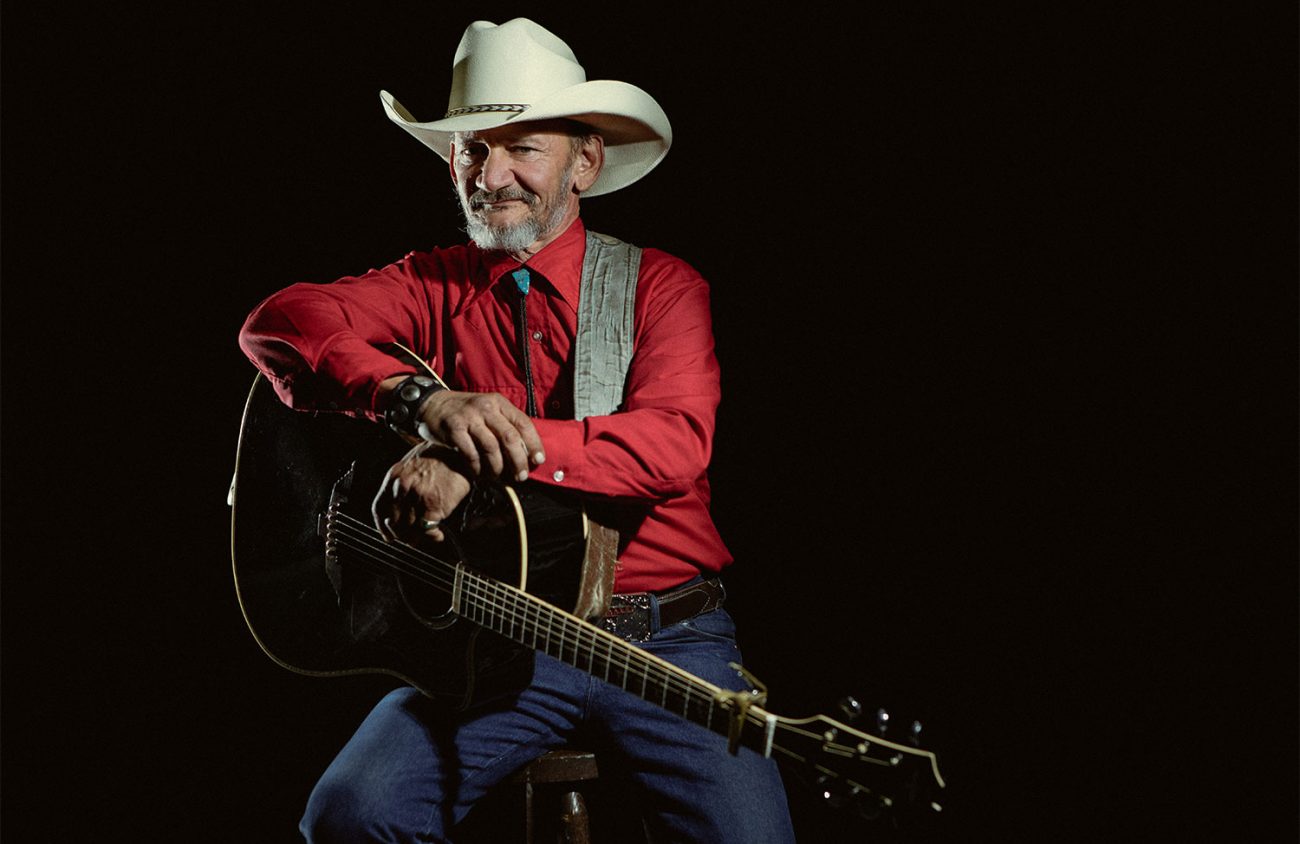I was walking south on Willamette Street a few weeks before Christmas when a man’s singing voice caught my attention near Kesey Plaza. The line “It’s a family tradition!” from the old Hank Williams Jr. hit boomed off the surrounding brick, echoing around the space.
At first, I couldn’t identify where the voice originated. Full and rich, the sound was almost earthen. Could it be the bricks of Kesey Plaza themselves?
Turns out it was Thomas Green, a 56-year-old formerly unhoused street musician playing classic country songs in front of the Barn Light while dressed in a 10-gallon hat and wearing his finest Nashville threads.
Thomas Pettus-Czar, owner-operator of the coffee house and bar in the 900 block of Willamette, first met Green at a summit of sorts, hosted at The Barn Light, between business interests and the unhoused.
“This cowboy walks into the bar,” Pettus-Czar tells me. “I’d never seen him before.”
After striking up a conversation, the subject turned to music. “We talked about all these old country singers,” he continues. “I am a huge fan of old country, outlaw country — Waylon and Willie.”
Then came an informal audition.
“He didn’t have a guitar but he sang country,” Pettus-Czar says. Green, who was unhoused at the time, sang for him on the spot, one original tune of his own and another by Conway Twitty. “It takes a lot of courage to sing in front of someone,” the bar owner says. “I was almost brought to tears, chills just talking about it. A remarkably special moment of human connection.”
Green was hired on the spot to play a paid weekly gig at the Barn Light, every Wednesday from 3 to 5 pm. Green’s welcome to play indoors, but he prefers to perform on the sidewalk. It was was Green’s first paying job in quite some time.
Green grew up in Oklahoma, and he has country music royalty in his blood. His great aunt was Ernest Tubb’s first wife. For Green, country music is indeed a family tradition.
He learned to sing and play listening to the record player. His father encouraged him. “He said I had an unusual voice,” Green recalls, but his mother always held him back as a child as far as music was concerned. Green’s not sure why.
“It was like trying to protect someone from the world until you can’t do it no more,” he says.
Shortly before her death, Green’s mother gave him her old Gibson guitar and her blessing. His mother’s passing was the first in a sequence of events that led Green to Eugene — and to becoming unhoused.
“She said take this and share your music with the world. Let God heal your soul. I made a vow to my mother and to God. I just chose to put the music out there,” Green says.
Green saddled up his old farm truck and headed west, his destination, Eugene. Green was familiar with Eugene from his days riding rodeo. “It’s the most beautiful city I’ve ever lived in,” he says, “the only city I know this size that I can stand in the center of and still see the trees outside of town. People call me friend. I came here to make a new start.”
Green is now housed in the Conestoga Huts Community Supported Shelters. “I’m no longer on the streets. It feels good to wear new clothes and feel a part of society again,” he says.
This life experience has also given new meaning to the music he plays.
“It makes me think of grandparent’s place — the good old days of dirt roads,” he says. “What I sing I’ve lived. I’ve been on that train, down that road. I never really knew what those songs really meant from the soul until I became homeless for the first time.”
Thomas Green performs 3 to 5 pm Wednesdays in front of The Barn Light. You can also catch him on occasion in front of the Eugene Public Library.
